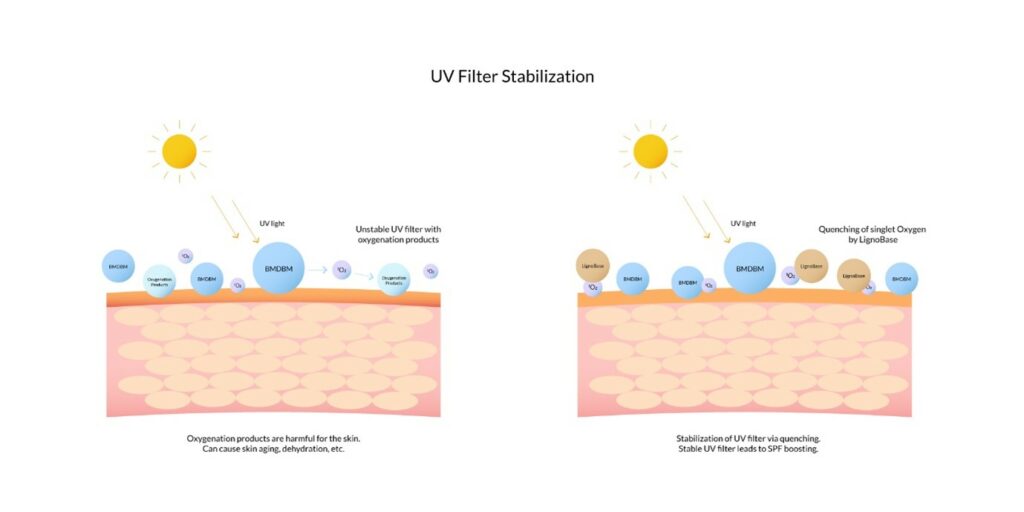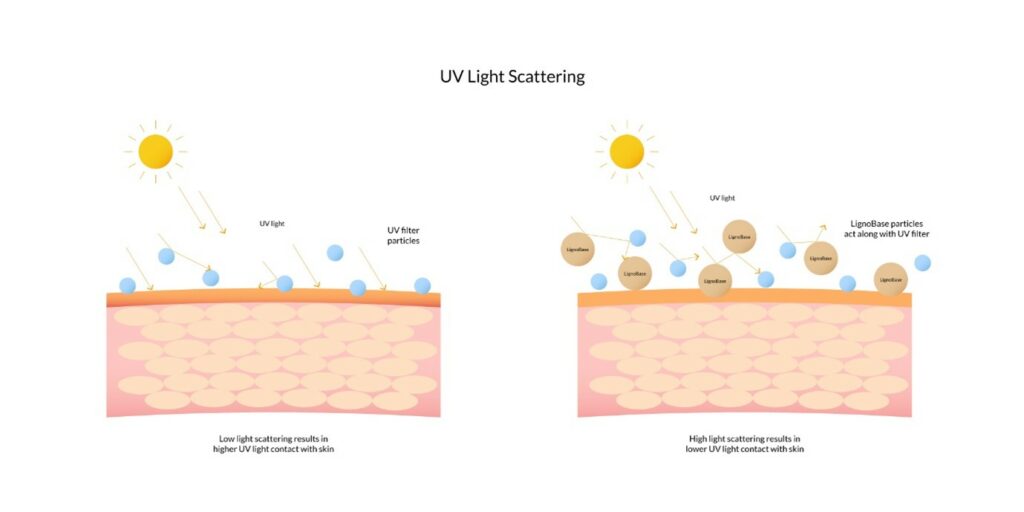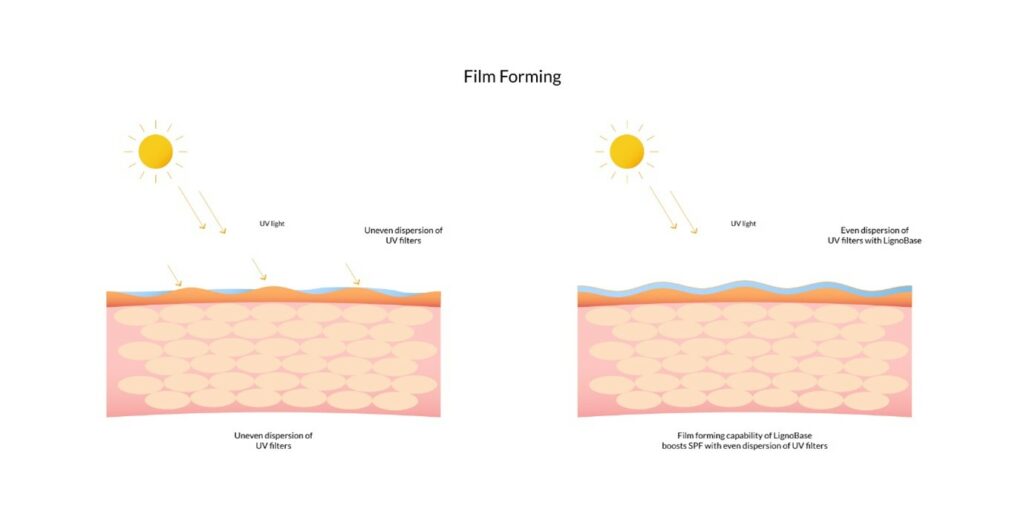(Sponsored article)
Lignin, a naturally abundant polyphenolic compound and key component of plant cell walls, is largely underutilized. Despite its proven powerful properties, it’s primarily relegated to low-value industrial applications or burned for energy, often as a byproduct of cellulose and paper pulp production
Ligopure Base, a natural SPF-Booster
Lignin is emerging as a safer, biodegradable SPF booster for sunscreens and personal care products. Its potential to reduce reliance on synthetic cosmetic ingredients is significant, yet raw lignin is unsuitable for cosmetic applications.
Lignopure recognized this potential and developed a patented particle technology to process lignin and unlocking its cosmetic functionality. This breakthrough resulted in Lignopure Base, the first non-nano lignin powder specifically designed for cosmetic formulations, boasting the highest lignin concentration on the market.
Sourced from clean, sustainable plants and processed with our patented technology, each LignoBase variant retains lignin’s unique polyphenolic structure, delivering key benefits: enhanced SPF, free radical protection, and potent antioxidant activity. Our bio-innovative line offers three distinct ingredients derived from birch trees, pine trees, and wheat straw, providing diverse options for formulators.
Lignopure Base’s mechanisms of SPF boosting effect
After demonstrating the SPF-boosting properties of lignin, many questions arise regarding the mechanisms behind its effectiveness. Based on Lignopure Base’s unique chemical and physical characteristics, we can identify four key mechanisms that may explain how it enhances SPF.
Photostabilization of BMDBM
Butyl Methoxydibenzoylmethane (BMDBM), a prevalent UVA filter, is prone to UV-induced instability, diminishing its protective efficacy and generating harmful byproducts. Specifically, its interaction with oxygen produces singlet oxygen, a reactive species that induces oxidative stress and cellular damage. This process further degrades BMDBM, reducing its UVA absorbance and increasing the risk of sun-related skin damage.
While quenchers can mitigate BMDBM’s photodegradation, they themselves can degrade, potentially releasing harmful byproducts. Lignopure Base offers a superior, natural solution by leveraging lignin’s complex phenolic polymer with diverse functional groups, including phenolic hydroxyl, carboxylic, carbonyl, and methoxyl. These groups effectively neutralize singlet oxygen, a primary driver of BMDBM degradation. Consequently, Lignopure Base acts as a natural stabilizer, significantly enhancing BMDBM’s photostability and boosting the overall protective efficacy of sunscreen formulations.

Synergetic effect between lignin and UV filters
J-aggregation, the stacking of aromatic rings in lignin and UV filters like OMC, leverages attractive forces between electron-rich and electron-deficient regions. This stacking forms larger structures that significantly alter UV light absorption.
This process lowers the energy required for the π-π* transition, crucial for UV absorption, and creates an extended conjugated system. Consequently, the UV absorption spectrum shifts to longer wavelengths—a spectral redshift. This broadened absorption spectrum allows the material to capture a wider range of UV radiation, enhancing sunscreen effectiveness.
Light scattering effect
The use of light-scattering particles to boost UV protection in sunscreens is a well-known approach, and Lignopure’s innovative micron sized lignin particles excel in this area. The non-nano lignin particles effectively scatter light, and when incorporated into sunscreens, its scattering effect increases the optical path length of UV radiation, ensuring that the light is more likely to interact with dissolved or dispersed UV filter molecules before reaching the skin, thereby enhancing the UV protection.

Film forming capacities
Sunscreen efficacy hinges on both the UV filter system’s absorption properties and its uniform distribution on the skin. Given the skin’s uneven surface, sunscreens that form a consistent film provide superior UV protection compared to those lacking this property. This uniformity directly impacts both in-vivo and in-vitro SPF values. Therefore, enhancing UV filter homogeneity on the skin is crucial for optimal performance.
Film-forming compounds are essential in sunscreen formulations to achieve this uniform distribution and boost SPF. During lignin extraction, residual cellulose often remains bound to the polyphenol structure, naturally imparting film-forming capabilities to the lignin extract. The amount of cellulose residue is directly influenced by the lignin extraction process.

Conclusion
Lignopure Base’s SPF-boosting mechanisms, supported by comprehensive in-vivo and in-vitro testing, establish its potential as a superior natural alternative for cosmetics. This upcycled, bio-based ingredient line enhances SPF levels while prioritizing human health and environmental safety.
From multifunctional makeup and skincare to tinted suncare and SPF-enhanced haircare, Lignopure Base is the ideal ingredient for consumers seeking effective UVA and UVB protection without compromising their commitment to sustainability.

